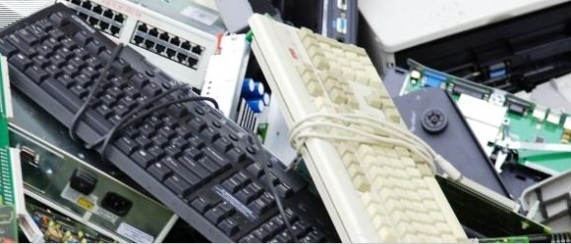While regular waste and waste disposal is something post people come into contact with in their everyday life, people may not spend too much time thinking about e-waste they generate. E-waste is short for electronic waste, and it has grown exponentially in the last few decades, as people come to own more and more appliances and devices. A business and culture of planned obsolescence encourages people to upgrade to the newest device, leaving the old one relatively worthless.
E-waste can be broken down into two categories:
Electronic Waste
This category includes screens like monitors and televisions, as well as mobile phones, computers and other entertainment devices. More often than not, these are personal devices that are usually replaced rather than repaired when something goes wrong with them, or even simply thrown away in favour of a newer, better device.
Electric Waste
This field of e-waste covers many kitchen appliances, like fridges, washing machines and toasters, as well as items like florescent lighting and electric toys. These items are not as subject to fashionable upgrading as Electronic Waste, but they are often cheaper to replace instead of repair.
The Problem of E-Waste
E-waste is a tremendous issue because of the unsustainable cycle of production and disposal. E-waste is not biodegradable, and many parts are unable to be recycled without significant investment. Thus, it becomes a huge contributor to landfill. Beyond this is the issue of hazardous materials and toxins located within certain devices. They are created as sole units, but are often disassembled or smashed apart when broken, which can bring people into contact with harmful chemicals or ingredients, like mercury or lead.
A possible solution
New apporaches to disposing of e-waste are continually being researched by waste management groups, including potential recycling programs to save waste from landfill. At the same time, people have a responsibility to be conscious consumers, avoiding unnecssary upgrades and frivolous appliances. The end result will mean healthier communities living on a healthier planet.
